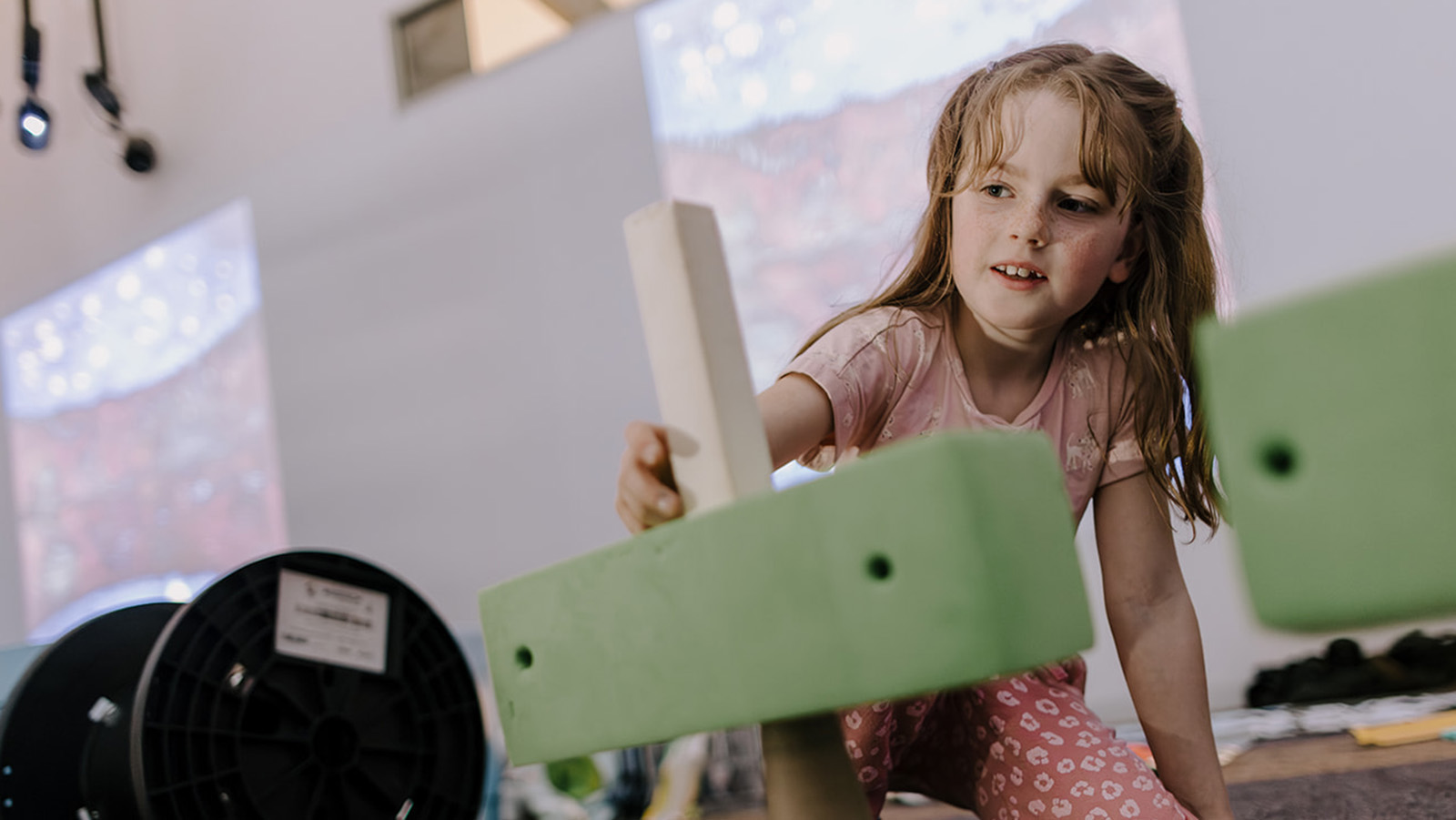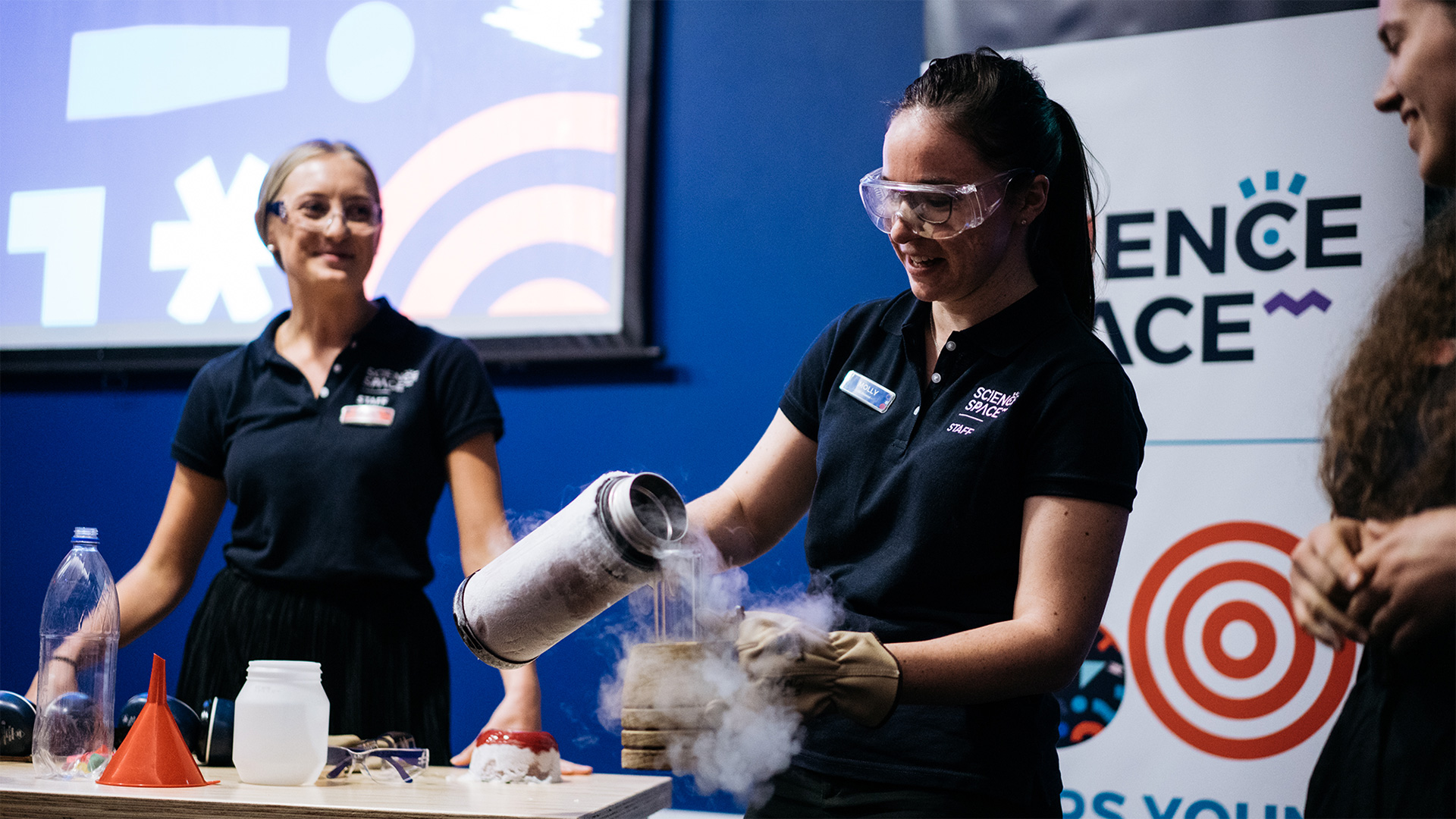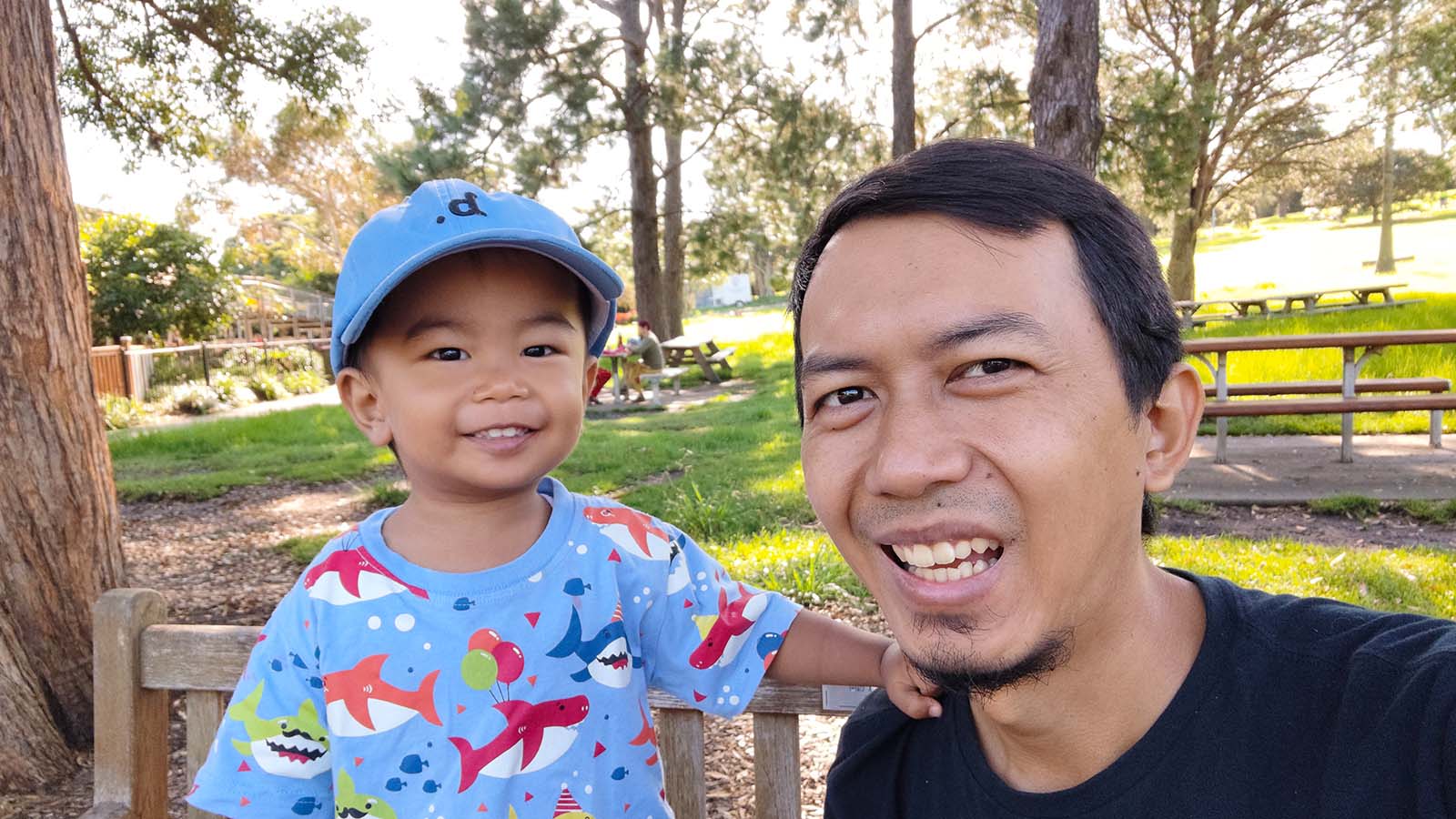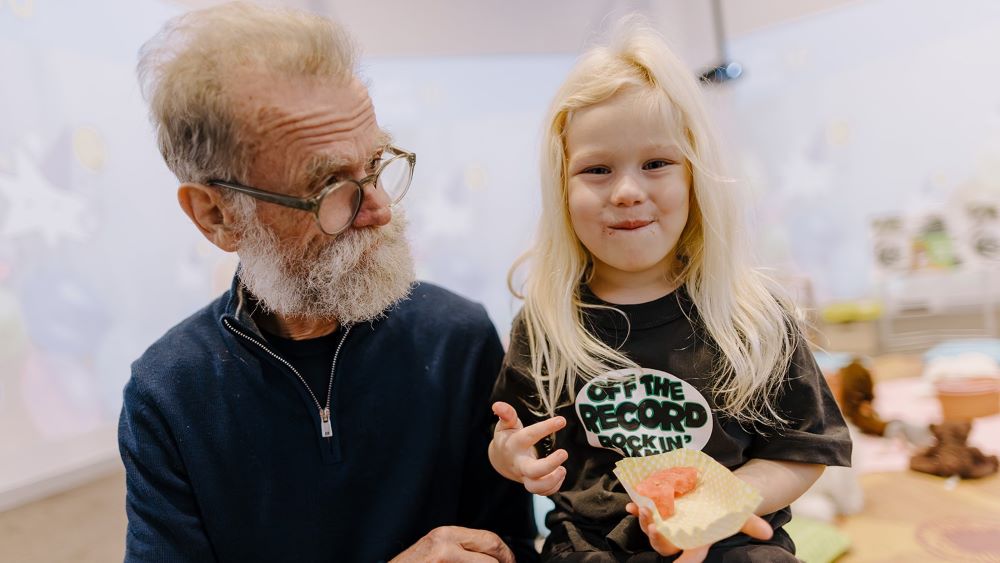May 10, 2025
More than a campus: how universities can be places of deep community connection and belonging
The Early Start Discovery Space and UOW Science Space are two of the Illawarra’s most beloved public-facing venues – and both just so happen to be embedded in UOW’s two main campuses in Wollongong.

Walk into Early Start Discovery Space at the University of Wollongong (UOW) on any given day and you’ll see it – children tinkering in The Pod, dads planting seeds with their children in the garden, grandparents and their little ones role-playing in the Marketplace Experience. Head over to Innovation Campus to UOW Science Space and it’s the same story: young minds blown by planets whirling overhead in the planetarium, high schoolers learning to code, kids and adults captivated by science shows, wide-eyed as soap bubbles meet liquid nitrogen.
It’s not your traditional view of a university. And that’s exactly the point.
For all the talk of higher education teaching quality, research citations and global rankings, universities are also home to something much quieter, yet critically important – community connection.
Beyond the classroom: A tale of two spaces
The Discovery Space, which celebrates its 10th anniversary this May, is the world’s first dedicated children’s museum on a university campus, and Science Space – turning 35 this year – is the only university-run interactive science centre in Australia, with more than 90 hands-on exhibits, daily live science shows and workshops, as well as NSW’s most digitally advanced planetarium.

A live science show at UOW Science Space
A quick search for ‘best children’s museums in Australia’ reveals a telling fact: UOW Science Space ranks second nationally and Early Start Discovery Space comes in fifth, according to TripAdvisor. That puts UOW in the rare position of hosting two of the country’s top five family learning destinations under “one roof”.
Together, both spaces welcome more than 200,000 people each year. For over a third of them, it’s their first-ever visit to a university campus. These aren’t just school excursions (though we host plenty). They’re spaces for lifelong learning, for shared wonder across generations.
Powered by community

Umar (left) and Randi (right) found confidence and community at Early Start Discovery Space
Almost every day, we meet people whose stories remind us why this work matters.
Randi arrived in Wollongong from Indonesia in 2022 with his wife, who was undertaking a PhD at UOW. Their two-year-old son Umar was shy, had no friends and showed signs of speech delay, which worried his parents.
Then they discovered Early Start.
They began visiting almost every weekday. At first, Umar wouldn’t even say hello to anyone. But over time, he began to engage – jumping, singing, and eventually, talking.
Today, Umar can speak in full sentences and has a crew of mates – Banjo, Kim, Anthony and Abraham – he met at the Discovery Space. “If there was no Discovery Space, I think it would’ve been hard for Umar to improve his speaking,” Randi told us. “When a child is happy, they can learn so many things.”
At Early Start, our work is powered by community. We house initiatives and researchers that support and directly respond to these community needs. When we noticed an uptick in dads attending with their children, we created the Dad Space in collaboration with Early Start researchers. And when a local organisation asked for help to address real-world challenges, we connected them with an honour's student whose project now centres on that community's needs.
Sharing science, building confidence
At Science Space, we take a similar approach. From our Adult Up Late Series, exploring the science of wine or chocolate, to taking STEM programs on the road to Eurobodalla and Batemans Bay, we work to make science feel accessible and exciting, not intimidating.
We’ve seen grandparents who visited as young parents now returning with grandkids in tow. We’ve witnessed parents learning about Archimedes’ screw for the first time alongside their children.
Even our research is built for sharing. Through our partnership with the ARC Centre of Excellence for Biodiversity and Heritage, Science Space co-created a planetarium show that tells the story of climate and First Nations collaboration. It’s now playing in domes across the country - and may soon reach international audiences.
What comes next?
To understand the long-term impact of community-based learning, Early Start is tracking the experiences of more than 600 former Discovery Space members – many of whom are now teenagers. Through surveys and focus groups, researchers are exploring how play, access and participation have shaped young people’s learning journeys. The insights will help tailor future programs and ensure we keep meeting the needs of children and their adults.
We believe the future of universities is local, relational and responsive. It’s parents learning to garden with their kids. It’s children exploring a mini marketplace updated with the latest healthy eating guidelines. It’s teens not being intimidated by the prospect of higher education because they’ve already interacted with scientists who spoke their language.
Community engagement is about relationships, connection and a sense of belonging. And it starts by opening the doors.
First published in The Illawarra Mercury, 10 May 2025. Republished here with permission.
